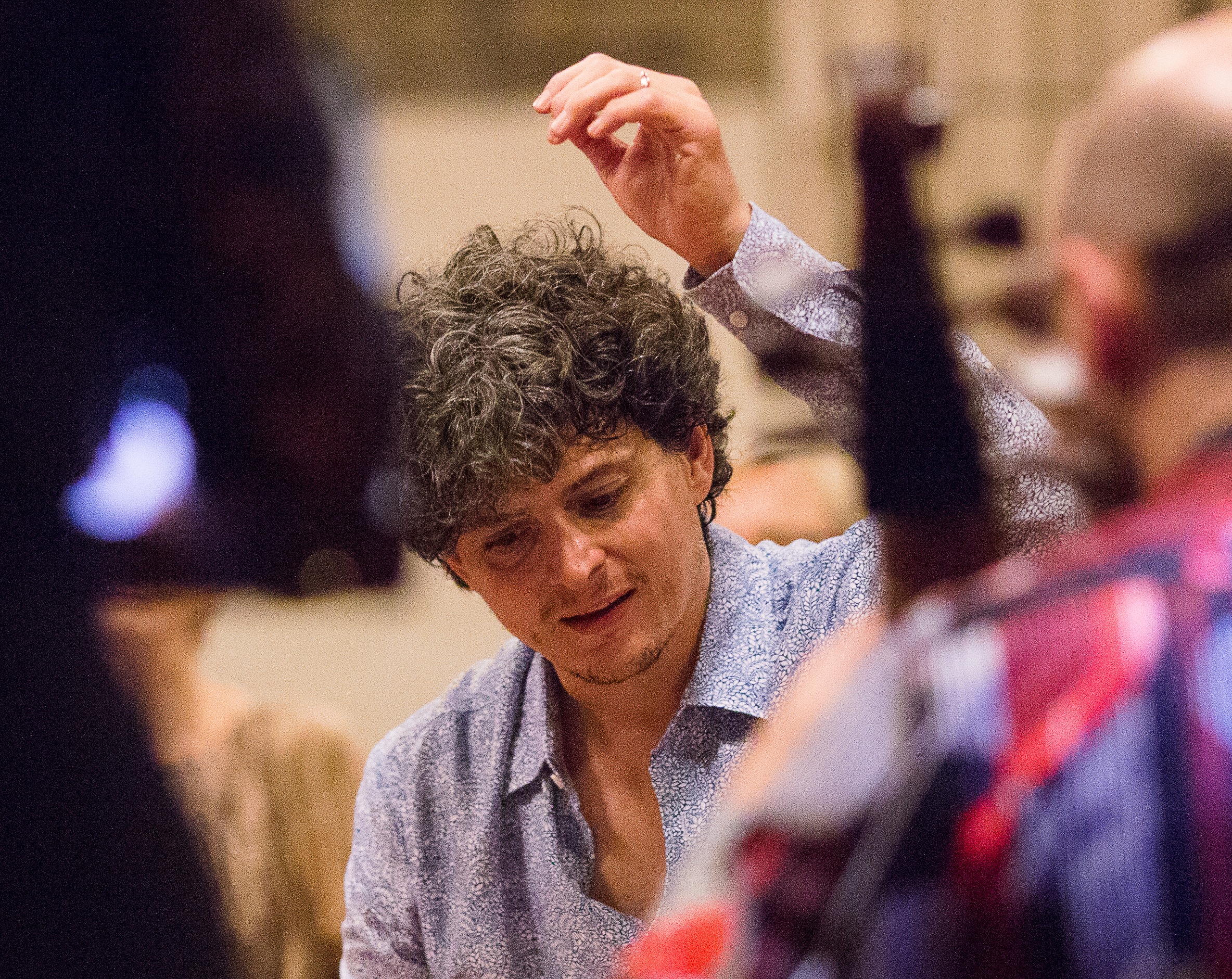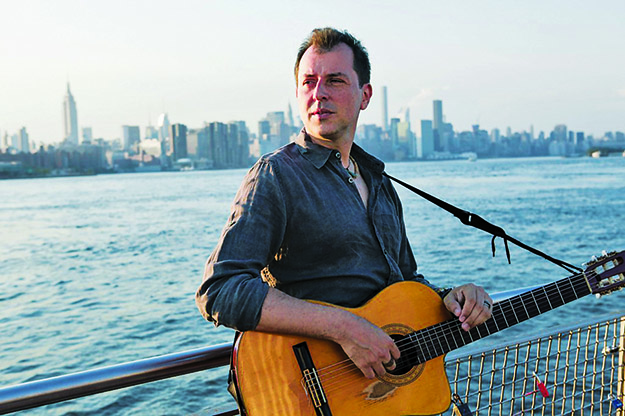This article is adapted from AQ’s print issue on peace and economic opportunity in Colombia.
Maqroll the lookout, the wayward sailor of Colombian writer Álvaro Mutis’ adventure stories, is a natural wanderer, a charming scoundrel living “on the edge of laws and codes.”
He is also the inspiration for Venezuelan guitarist and songwriter Juancho Herrera’s latest album, Gaviero (lookout in Spanish), released in August 2017. Those familiar with the tense energy of Mutis’ stories will recognize their presence.
Like Maqroll, Herrera crisscrosses Latin America’s musical waters, finding new influences at every port of call: Jaime Roos and Rubén Rada, Luis Alberto Spinetta, Cecilia Todd, and Venezuelan jazz and folk music.
But, as author Francisco Goldman wrote in a prologue to the Gaviero stories, a “real influence” is one that gives the artist “an imaginative energy which you use to your own ends.” And to that effect, Herrera is consistently irreverent toward his musical influences. By the second crescendo in the middle of “Gaviero,” the title track, listeners can hear a clear search for imaginative musical turns. The same is true by the time Herrera finally ends his first note on “El gallo pinto.” Songs seem to come to an end, only to recover energy and tell us an additional piece of a story with an understated trumpet solo, a jolting change in pace, or a new lyrical appeal.
This album is built on a powerful but subtle rhythm section (Ben Zwerin, Yayo Serka and Keita Ogawa) over which Herrera’s voice and guitar and Josh Deutsch’s trumpet are always on the verge of breaking into a jam session. The pop-oriented forms strain to keep those improvisations at bay, giving the album great energy throughout. The few guests are singers (Sofía Rei, Sofía Tosello and Alejo García), plus percussionist Samuel Torres on the bonus track version of “La maña se acaba,” recorded in 2011. All the songs are by Herrera, except for “El gallo pinto,” a traditional Venezuelan piece.
Herrera is something of a wanderer himself, having performed throughout the world, from Caracas to Tokyo and New York, where he has been based since 2000, playing alongside distinguished jazz musicians and others artists.
Echoing Brazilian singer Caetano Veloso’s song — which echoed Fernando Pessoa, who channeled Petrarch, who in turn supposedly echoed Pompey — Herrera, our gaviero, exhorts us, with grace and sincerity, to sail through these uncertain waters: “Hay que navegar, hay que navegar.”
—
Zubieta is director of the music program at Americas Society






